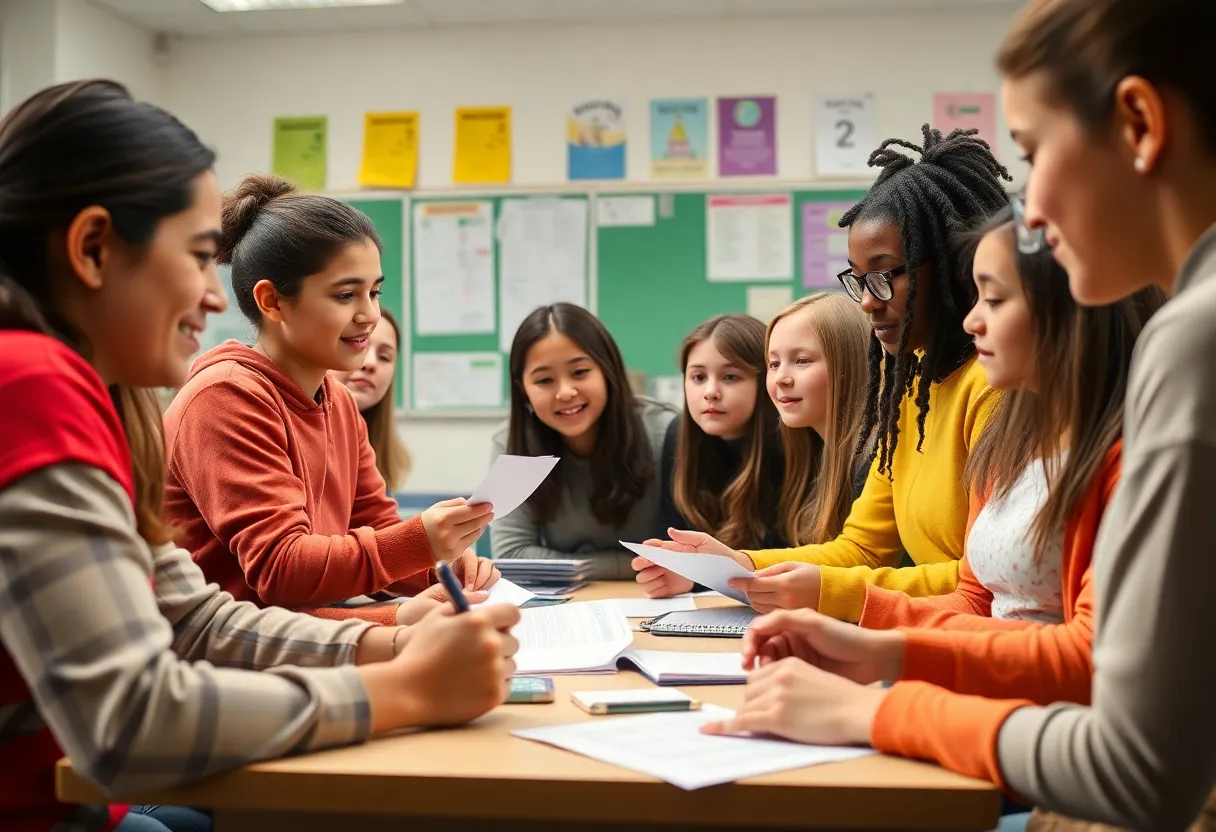News Summary
The $50 Study in New Orleans is yielding positive results, demonstrating that direct cash transfers can enhance both school attendance and financial skills among teenagers. Participants receive $50 weekly for 40 weeks, which supports essential needs and encourages better money management. Early findings suggest that students receiving cash transfers attended school more consistently without impacting academic performance. The program has expanded to more schools and aims to improve overall financial capability and economic mobility for youth from disadvantaged backgrounds.
New Orleans is witnessing promising results from the $50 Study, an innovative initiative assessing the impact of direct cash transfers on financial skills and school attendance among teenagers. The program, which provides selected students with $50 weekly for a total of 40 weeks, has garnered attention for its findings that suggest financial assistance can lead to enhanced educational outcomes and better money management among participants.
The $50 Study began with the aim of understanding how direct cash transfers influence the financial behavior of high school students. The total support for each participant sums up to $2,000 over the course of the study. Students involved in the program, such as Kapri Clark, Lyrik Grant, and Kevin Jackson, have reported utilizing the funds for a variety of essential expenses, including braces, dance classes, and other personal needs.
Researchers conducted a comparative analysis between the treatment group receiving cash and a control group not receiving any financial aid. Initial findings indicate that students who received the $50 weekly payments were 1.23 days more likely to attend school compared to their counterparts who did not benefit from the program. Encouragingly, this increased attendance occurred without a direct correlation to changes in academic performance, suggesting the cash transfers may play a significant role in getting students into the classroom.
Beyond attendance, participation in the study has shown impactful outcomes on students’ long-term financial planning skills. On average, participants managed to save $300, a significant achievement compared to the national savings rate for adults, which hovers around 15%. Stacia West, an associate professor at the University of Tennessee, emphasized that even low-stakes financial management experiences can aid young people in developing important money management habits.
The $50 Study is designed to help improve overall financial capability among teenagers, specifically those from economically disadvantaged backgrounds. Approximately 80% of students at The Rooted School, where the program is based, qualify for subsidized meals. Previous findings from private pilot groups indicated that this initiative fostered improved material well-being and enhanced goal-setting skills among participants.
Over five years, the program has expanded to include eight additional high schools, including one located in Indianapolis. It is currently regarded as the largest randomized controlled trial in the U.S. evaluating unconditional cash transfers aimed at high school students. A total of 170 students in the treatment group and 210 students in the control group have been analyzed in the comprehensive report detailing the program’s findings.
The financial habits of students in the treatment group revealed a marked emphasis on fulfilling essential needs, such as food and groceries, with many participants recognizing the funds as a vital resource for meeting their basic living costs. Furthermore, many of the students reported feeling a pronounced sense of control over their finances and increased confidence in their ability to set and achieve long-term financial goals as a result of the program.
In light of these positive outcomes, the City of New Orleans has invested $1 million to extend the study, aligning it with broader economic mobility initiatives following the COVID-19 pandemic. Future evaluations will explore the long-term impacts of direct cash transfers on these students, with tracking extending 18 months after graduation. Additionally, a partnership with the city’s Office of Economic Development is set to further investigate the effects of such cash assistance on student economic mobility.
Overall, the preliminary findings from the dual-year evaluation running from 2022 to 2024 provide growing evidence that direct cash transfers can meaningfully influence both school attendance and financial capability among teenagers. This pilot program’s insights are contributing important knowledge to ongoing discussions around universal basic income and its potential implications for youth financial responsibility.
Deeper Dive: News & Info About This Topic
HERE Resources
Microsoft Enhances Performance Management with New Policies
Additional Resources
- PR Newswire: $50 Study Results
- Entergy: Energy Smart Rebates
- NOLA.com: Economic Development Innovation Division
- IndyStar: Rooted Schools Income Study
- NOLA.com: Guaranteed Income Study Expansion
- Wikipedia: Universal Basic Income
- Google Search: Financial Education for Youth
- Google Scholar: Financial Literacy Programs for Students
- Encyclopedia Britannica: Financial Literacy
- Google News: Direct Cash Transfers Impact
Author: STAFF HERE NEWORLEANS WRITER
The NEW ORLEANS STAFF WRITER represents the experienced team at HERENewOrleans.com, your go-to source for actionable local news and information in New Orleans, Orleans Parish, and beyond. Specializing in "news you can use," we cover essential topics like product reviews for personal and business needs, local business directories, politics, real estate trends, neighborhood insights, and state news affecting the area—with deep expertise drawn from years of dedicated reporting and strong community input, including local press releases and business updates. We deliver top reporting on high-value events such as French Quarter Festival, New Orleans Jazz & Heritage Festival, and Essence Music Festival. Our coverage extends to key organizations like the New Orleans Chamber of Commerce and Greater New Orleans, Inc., plus leading businesses in energy, healthcare, and education that power the local economy such as Entergy, Ochsner Health, and Tulane University. As part of the broader HERE network, including HEREShreveport.com, we provide comprehensive, credible insights into Louisiana's dynamic landscape.

